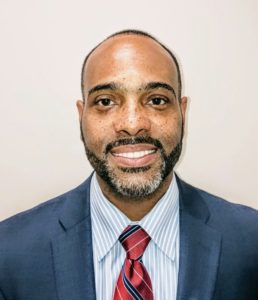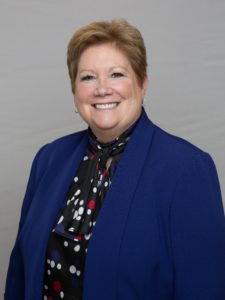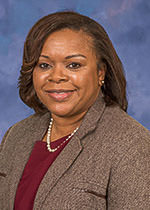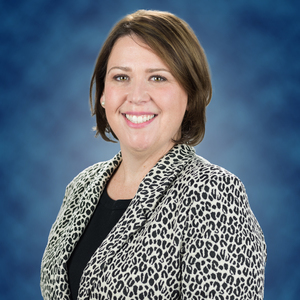Peirce College launches accelerated degree to help Philly’s displaced workers through the post-pandemic recovery
 June 23, 2021
Category: Featured, Long, Purpose
June 23, 2021
Category: Featured, Long, Purpose
Come this fall, Philadelphia’s Peirce College, a 156-year-old majority-Black institution of adult higher education, will launch Career Bridge, a new program focused on giving displaced workers the skills and opportunities needed to succeed in the region’s post-pandemic recovery.
Career Bridge comprises several degree tracks — including medical coding, cybersecurity, and project management — while embracing various forms of prior learning assessment, allowing students to complete their work within an accelerated time frame. Intermingled within each degree program are minor professional certificates, which create short-term goals for students, all of which combine into what is known in higher education as “stackable credentials.”
Career Bridge received considerable investment from Philadelphia’s nonprofit sector. The Lenfest Foundation awarded Peirce a $500,000 grant to support tuition for 40 need-based students, and Bank of America gave the school an additional $25,000 to be used toward the program. The effort comes at a time of national labor shortages, with employees in Philadelphia and the nation at large reexamining their value in the job market and the need to rebalance the scales between work and life in a post-COVID world.
One year after the murder of George Floyd, Black Americans and people of color continue to challenge racially exclusive workplaces, holding to account employers who made bold promises on social media but have yet to follow through.
“It’s a really good time for folks in the labor market,” Peirce College’s Vice President of Workforce Innovation & Career Partnerships Hassan Charles said. Charles, a member of the college’s President’s Council, provides executive stewardship focusing on workforce initiatives at the school’s virtual center. He works with community partners, such as Philadelphia Opportunities Industrialization Center (OIC), developing synergistic relationships to recruit potential students and create enhanced educational opportunities.
“Companies are coming back and coming back in a way with an understanding of areas that probably would have taken years to evolve, like, work-life balance, like remote work opportunities,” Charles said. “And I think it’s really a good time for residents, for job seekers to take a clear inventory of what it is they want in their careers.”
Peirce College knows how to help the region through a crisis. The school first opened its doors in 1865, then as Union Business College, when it taught career-oriented courses to Union soldiers returning home from the war.
Coed education was the norm at Peirce long before most other schools began to admit women. Today, the college is a Minority Serving Institution as designated by the U.S. Department of State, and Pennsylvania’s only institution of higher education focused entirely on adult learning.
The focus on adult education gave Peirce a leg-up in the early days of the pandemic. While much of the world struggled with the adjustment to social isolation and stay-at-home orders, Peirce leaned on its strengths — online education that served the needs of working adults.
According to Dr. Mary Ellen Caro, the college’s president and CEO (the first woman to hold both titles), and Provost and Vice President of Academic Affairs Dr. Rita Toliver-Roberts, Peirce made a smooth transition from a hybrid model, which saw students supplement their online work with on-site courses, to an all-online program thanks to years of dedicated infrastructure.
In addition, Caro told Generocity, the school found more holistic ways to help. Peirce instituted a program to help students without internet or computer access and began a fund to give those in need money for utility bills and other necessities.
“We found that of those students that took us up on [the funding] offer, they had a retention rate of over 90%,” Caro said.
She also said that many of these students would need continued assistance throughout the coming year, which is why Caro believes that Career Bridge will play an integral part in Philadelphia’s post-pandemic recovery.
She’s not the only one. Along with The Lenfest Foundation and Bank of America, community partners and nonprofits from across the spectrum continue to show interest in the program, whether it’s through grant money or job opportunities for students.
Overwhelming interest, as shown by these various organizations, couldn’t come at a better time in Philadelphia’s recovery cycle, especially for a majority-minority institution such as Peirce.
A report by Washington D.C. think tank the Economic Policy Institute found that around one in five Black Pennsylvanians was out of work at the end of last year. At the same time, as City Council debates a new budget, Councilmember Allan Domb released a document showing that Philadelphia has the lowest rate of average employment per 1,000 people and is far behind other cities in the number of Black-owned businesses.
On the education side, Pierce approaches this problem by accelerating Career Bridge, embracing various credit-for-prior-learning options, and giving students short-term goals on the way toward earning their degrees, an idea known as stackability.
The program will have seven degree options at launch, including medical coding, IT user support, IT network support, cybersecurity, project management, financial & business operations, and sales & client service, all of which can be truncated into a six-to-nine-month time frame.
According to Toliver-Roberts, students can earn credit for their experience and knowledge via prior learning assessments, challenge examinations, nationally-recognized testing services such as CLEP and DANTES, and other avenues, in addition to transferring in courses. Peirce is a military-friendly school and, as such, accepts military credit evaluated by the American Council on Education.
But even in an accelerated program, short-term goals create steppingstones that give adult learners something they can reach. As Toliver-Roberts told Generocity, students can take advantage of Peirce’s partnerships with organizations like Kaplan and the fact that the school accepts, for example, the Project Management Professional Certification for credit. Stack enough of these on top of each other, and students can build a deep portfolio on the way toward their degree.
According to Toliver-Roberts, there are many ways to earn credit in Career Bridge.
“I may want to do some experiential learning and maybe solve a problem or do some extra work for my organization that allows me to earn some credit,” Toliver-Roberts said. “So, what looks like two-and-a-half to three years for me to complete my bachelor’s degree is now down to maybe a year to a year-and-a-half.”
One of the more popular and in-demand programs offered through Career Bridge is the medical coding track, a prescient course of work in light of the COVID pandemic.
Faculty Chair & Professor of Health Programs Dr. Stephanie Donovan told Generocity that the program is focused on the biomedical sciences, with students taking courses in anatomy and physiology, pathophysiology, and more.
But it also centers on applied work, teaching future coders the ins and outs of insurance billing.
Moreover, the medical program hears the conversations about structural racism in health care today and incorporates them into the program.
“We recognize that equity, diversity, and inclusion are all critical aspects of providing access to health care for everyone,” Donovan said. “I don’t know that we can really separate the two.”
The Philadelphia region is a healthcare hot spot, and medical coding and billing careers continue to grow faster than average throughout Pennsylvania. According to Donovan, it’s a career path tailor-made for the post-pandemic recovery, as the field welcomes those looking to enhance their skills along with newcomers. “We need credentialed, competent, qualified, medical billers, and coders,” she said.
Giving students the crucial skills they need through social services and job training initiatives is critical to the success of Career Bridge. Community partnerships, or what Charles calls collective impact group partnerships, recognize the synergies between Peirce and its partners. According to Charles, the program offers workshops and training programs, and wraparound services that allow students to succeed and persevere.
Through these partnerships, students receive credit for experience, internships, interviews, and, ultimately, genuine job offers.
Latoya Edmond of Philadelphia OIC, the job training and workforce development organization founded by the Reverend Leon H. Sullivan in 1964, agreed. Edmond is vice president of workforce development and economic innovation, having built a strong background in the field over the past 15 years.
In a conversation with Generocity, Edmonds said that Philadelphia OIC’s partnership with Peirce is a unique opportunity for students to earn a workforce credential while studying for a career pathway.
For example, she said, Philadelphia OIC’s Bankwork$ program, which is worth three college credits at Peirce and prepares inner-city adults for a career in banking, meshes well with Career Bridge. What began as a training program where students could find a job earning $30,000 per year is now part of a degree program where students can earn upwards of $60,000 per year.
“It’s taking a look at that continuum of education and training and it’s not just stopping at those entry-level roles but it’s also preparing them for those midlevel roles,” Edmond said.
More importantly, today’s prospective employees have more opportunities to take control of their futures. With labor shortages in the post-pandemic job market, and workers rethinking what they want from a relationship with an employer, the balance of power is slowly shifting. Employers are the ones that now have to be more strategic. “A lot of people have decided that I am worth more or I can be more specific about the job,” said Edmond.
Enrollment in Career Bridge remains ongoing. Meanwhile, Peirce will center the program as a vital part of the Philadelphia region’s post-pandemic recovery.
“We believe that Peirce will play an important role in [the recovery],” Caro said, “particularly if we can scale what we’re doing with the Career Bridge work, that’s been funded and moving it into an even broader serving set of [the] population.”
Trending News













